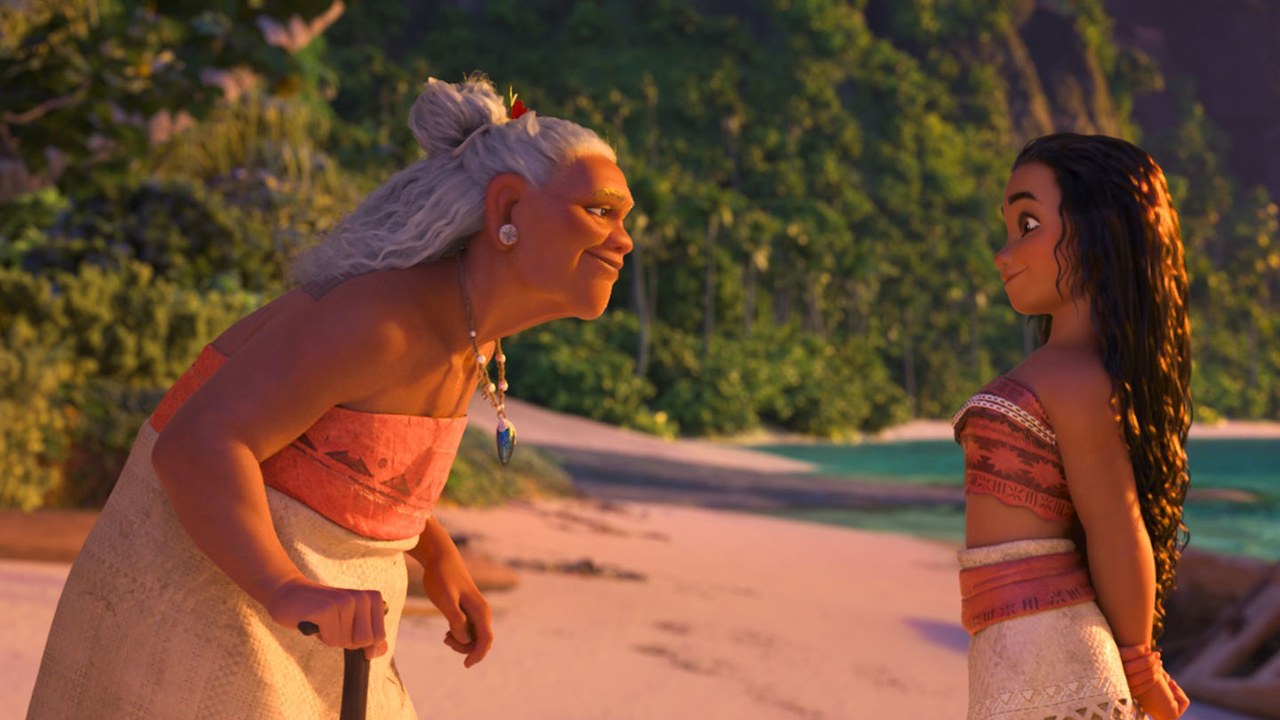This tropical paradise is upset by the dwindling of resources, and there’s suddenly a practical need to venture beyond the island’s harbor. The root cause is associated with Maui and his theft of an artifact from the creation goddess, and with the blessing of her similarly rebellious grandma Tala (a fantastic Rachel House), Moana takes a boat from a long-hidden trove of sailing vessels and sets out to find Maui. Their subsequent adventures as plucky ladyboss and overconfident braggart take them through incredible setpieces, deriving inspiration from sources as varied as Fury Road and David Bowie with spectacular results.
As strong as the action is and as humorous as the interplay between Moana and Maui often gets, the star of the film is Miranda’s soundtrack. In collaborating with Polynesian musician Opetaia Foa’i, Miranda’s work is consistently affecting and projects a feeling of authenticity. Moana’s anthemic solo How Far I’ll Go works off of the earnest Cravalho’s belting while Miranda’s unique lyrical rhythms put his stamp on the song. Playing a giant crab, Jemaine Clement gets to whip out his Bowie impression in Shiny while Johnson displays yet another of his talents in the bouncy You’re Welcome.
Moana’s greatest achievement, however, contains no named characters and comprises a brief vision Moana has of her people’s history. Performed by Miranda and Foa’i and partly sung in Samoan and Tokelauan, We Know the Way is rousing to the point of tears, a demonstration of indigenous ingenuity on par with Henry the Navigator. The seafaring dominance on display in a mere two-minute demonstration communicates a discovery for Moana comparable to fellow recent animation favorite How to Train Your Dragon, wherein both protagonists joyfully discover that what they’ve always suspected is in fact true. The film has a reverence for the pathfinders of the Pacific Ocean, as well they should when all one has to sail the vast expanse of water is the stars, wood, ropes, and sails. The song ends with the transference of knowledge from one generation to another, a bracing exclamation point that clashes with the tragic break in that transference and the implied betrayal of the warm, proud, ingenious people in the vision. The scene is as potent an argument for diverse storytelling as could be made, such that it merely hints at the richness of material set in environments and cultures that don’t prominently feature knights and castles.
Though its basic structure isn’t breaking any new ground, Moana feels like the best possible version of a straightforward adventure story. Told with passion and brimming with life, its story is set apart by its cast made up solely of actors from Polynesian origins, and though the creative team is more monochromatic, it’s never in doubt that the film is foregrounding the culture and the people on display. Miranda’s a songwriting master, as evidenced by repeated forays into youtube to experience the soundtrack again and again. Moana is such a strong entry for Disney that cannibalizing it with sequels sounds perfectly fine with me, though the aforementioned trolls will surely take issue that she’s the lead and not Johnson’s Maui. A-

 RSS Feed
RSS Feed